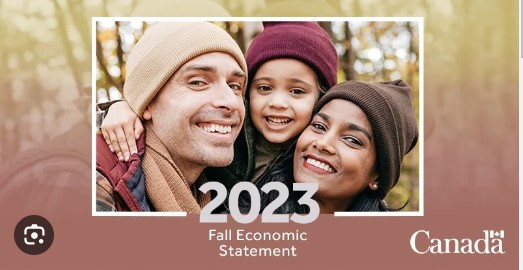November 23 2023
Compared to what’s needed, the 2023 Fall Economic Statement provides only limited help for Canadians. There were no measures to crack down on price gouging, like a windfall profits tax. New funding for affordable housing was a fraction of what is needed. While climate change is a growing threat to Canadians, nothing new is being planned.
7,000 units of non-profit, co-op and public housing not nearly enough
What’s fueling the housing crisis is not just the number of available housing units, but the cost of them. The financialization of housing has pushed up the cost of both buying and renting homes. To solve that problem, Canada doesn’t just need more housing—it needs more affordable housing.
The only long-term solution is building more non-profit, co-op and public housing. When assistance is given to for-profit developers, there are limits on how long units are affordable. And the definition of affordable often means that they can still be beyond the reach of many households.
The 2023 Fall Economic Statement announced that $1 billion will be provided over 3 years for 7,000 units of non-profit, co-op and public housing. That’s a fraction of what’s needed. In the 1980s, the federal government was funding an average of 18,688. Canada’s population has grown since then, so more units are needed now. The federal government should be trying to make up for the affordable housing deficit that accumulated during the years when the federal government was funding almost no new units.
Whether the mortgage charter announced in the Fall Economic Statement will have any impact is also debatable. Unless it is accompanied by legislated requirements, it will depend on the good intentions of banks. Based on past experience, relying on the good intentions of banks is not realistic.
Only token measures on health care
The Fall Economic Statement 2023 does little new to improve health care. Most of the references to health care are the rehashing of previous announcements. This includes the $2 billion top-up to the Canada Health Transfer; the fact that only one bilateral agreement with a provincial government has been signed is a concern. There are also some programs that are being allowed to expire, such as the 10-year Home and Community Care and Mental Health and Addictions Services Funding Agreements, which expire in 2026/27 and the long-term care funding expires in 2027/28.
Instead of new funding for mental health, the only measure is the elimination of the GST/HST on psychological and counseling services. This does nothing to expand access for those in need. However, the new health care funding could and should include mental health in the bilateral agreements with the provinces—when those are signed.
Moving the chairs around, instead of increasing the number of health care workers
The health care worker shortage is acute, but the Fall Economic Statement is assuming the provinces will use the increased funding for health care, but this may not happen without specific conditions. Another questionable assumption is that working towards full interprovincial mobility for health care workers will help with the shortage of health care workers. Unfortunately, full interprovincial mobility does nothing to increase the number of health care workers available. In fact, allowing for increased mobility between the provinces could increase the shortage in some provinces that are not able to attract workers as easily as others.
Without tax fairness, Canadians won’t get the help they need
The federal government has the ability to do more to help Canadians who are struggling, but only if it gets serious about tax fairness. That hasn’t happened.
There have been no excess profits taxes or wealth taxes to address price gouging and profiteering during the COVID-19 pandemic. Measures that have been introduced have frequently been watered down so that they aren’t having the promised impact. That means that the wealthy individuals and corporations who have become richer than ever during the last few years still aren’t being asked to pay their fair share.
When many Canadians are struggling to get by that should be unacceptable.
Tax fairness can help curb inflation
What is becoming increasing clear is that profiteering by large corporations is helping fuel inflation. High interest rates aren’t going to address that problem. What will have an impact are measures like taxing excess profits. Unfortunately, neither the current Liberal government nor the opposition Conservatives appear to recognize that.
Small step to improve protection for public post-secondary education
One positive measure is the plan to amend the Companies’ Creditors Arrangement Act and the Bankruptcy and Insolvency Act to prevent public post-secondary educational institutions from using them. This is a positive step. The use of federal insolvency laws by Laurentian University in 2021 was a serious blow to the accountability of public post-secondary institutions and the quality of education at that institution. Instead of a public debate around the impact of underfunding and poor decision-making, decisions were made behind closed doors.
Preventing public post-secondary educational institutions from using federal insolvency laws is something that the National Union has called for. Our one concern, that we will be making clear, is that the change should apply to all public institutions, not just post-secondary educational institutions.

